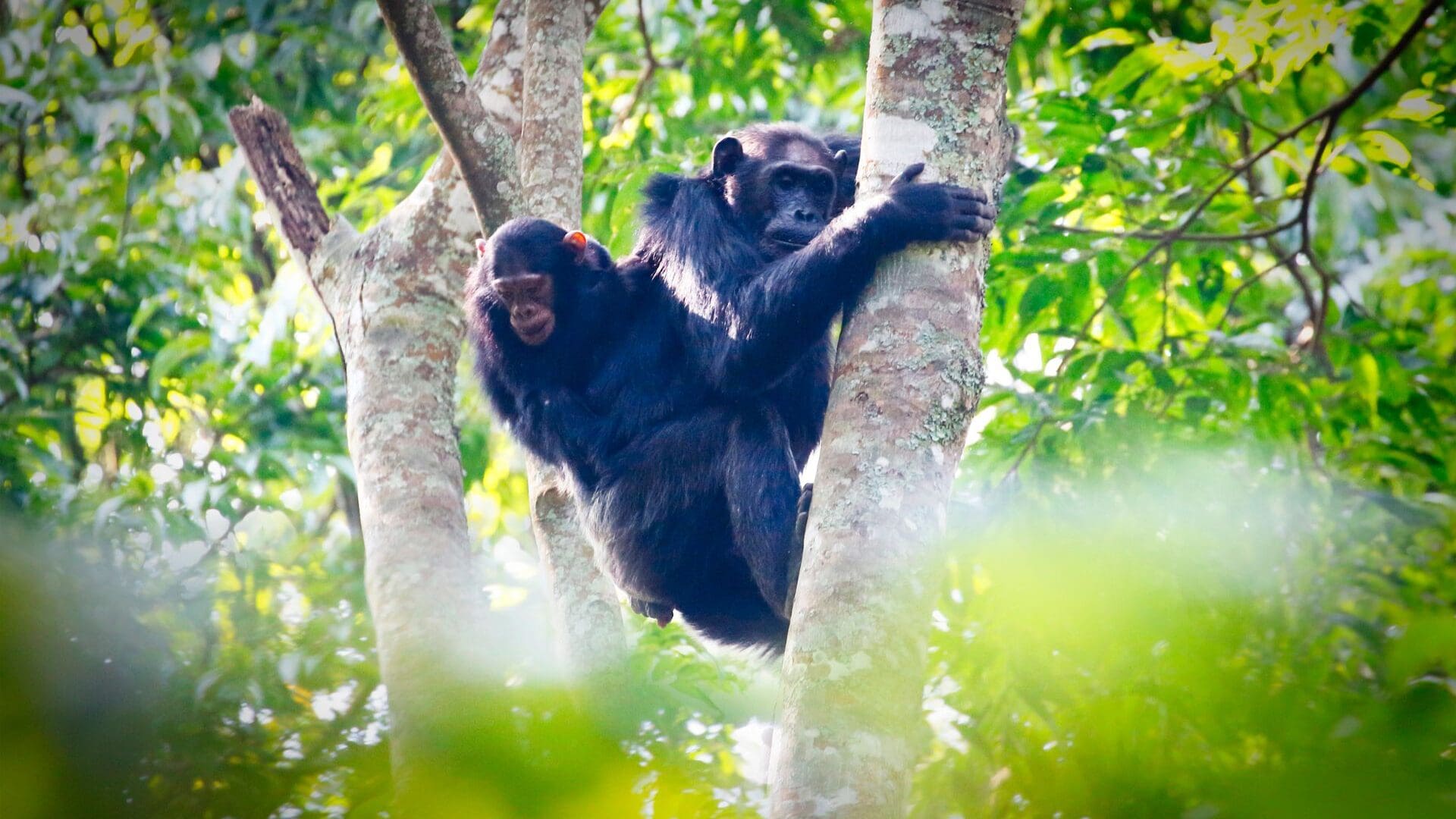A safari in Rwanda, the “Land of a Thousand Hills”, offers lush landscapes and extraordinary wildlife experiences, including encounters with endangered mountain gorillas. Thanks to Rwanda’s extensive conservation efforts, the value of trekking permits reflects the premium quality of this unique safari experience.
From exploring Volcanoes National Park, the savannahs of Akagera National Park, or visiting the lush rainforests of Nyungwe National Park, Rwanda appeals to guests looking to support sustainable tourism practices through their travel experience.
Key Factors for Setting Your Budget on a Rwanda Safari
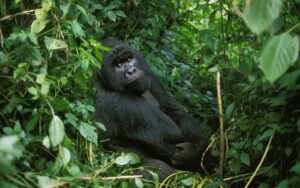
Destination and Activity Choice
Rwanda’s safari experiences can vary widely in cost based on the destinations you choose to explore and the activities you engage in. For example, gorilla trekking in Volcanoes National Park is a premium experience with permits costing $1,500 per person, reflecting the exclusivity and conservation efforts for the endangered mountain gorilla.
Safaris in Akagera National Park can be experienced at a lower price point, offering traditional game drives with the possibility of spotting the Big Five.
Nyungwe Forest National Park is another key destination, known for its chimpanzee trekking, which is $150 per person, rich biodiversity, and birdwatching safaris.
Accommodation
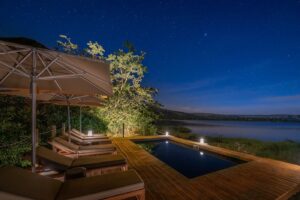
Lodging is a significant part of your Rwanda safari. Prices can range from $300 per person per night in comfortable mid-range lodges to over $1,500 per person per night in ultra-luxurious eco-lodges, which offer unparalleled views and premium services.
Seasonality
Rwanda’s peak travel seasons (June to September and December to February) coincide with the best weather and wildlife viewing conditions, resulting in higher prices. Travelling during the shoulder seasons can offer slightly lower rates and a different, but equally rewarding, safari experience with lush landscapes and fewer visitors.
Duration of Stay
The length of your safari will naturally impact the overall cost. A longer stay allows you to immerse yourself more deeply in Rwanda’s diverse ecosystems, but it will also increase your budget. A typical seven-day safari with gorilla trekking and visits to multiple parks may range from $9,000 to $15,000 per person, depending on your accommodation choices.
Group Size
Non-private scheduled tours are more affordable than booking a private safari. However, private safaris offer a more exclusive, tailored experience.
In Rwanda, transport is usually done in a luxury 4×4 vehicle with a private guide. It can be more affordable if shared with another couple or if you are travelling as a small family. Our safari experts can help you find the right option suited to your travel needs.
Activities and Excursions
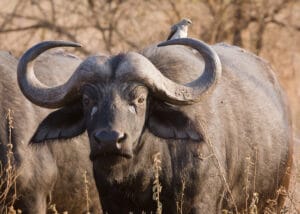
Enhance your Rwanda safari with additional activities such as golden monkey tracking, birdwatching in the lush forests, a cultural tour of Kigali, a visit to the Ellen DeGeneres Museum, or a hike to Dian Fossey’s grave. These activities typically range from $20 to $200 per person, depending on the nature and duration of the experience. The Virunga Mountains offer breathtaking views and are a premier location for hiking and mountain gorilla trekking safaris.
Park Fees and Permits
The cost of permits for gorilla trekking is the most significant expense in Rwanda at $1,500 per person. Chimpanzee trekking permits are also a key consideration, set at $150 per person for 2025. Park entry fees for other activities generally range from $30 to $100 per person, depending on the location and duration.
Travel and Transfers
Factor in the cost of international flights to Kigali, as well as domestic transfers between parks and lodges. Internal flights within Rwanda are available but typically cost between $200 and $400 per person each way, depending on the distance.
Road transfers are a common and often more cost-effective option. High-end tours can also include point-to-point helicopter transfers, but at a price.
Meals and Drinks
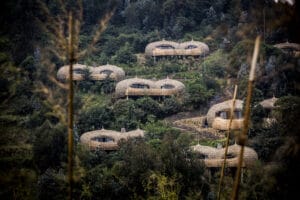
Many lodges in Rwanda offer full-board options, which include all meals and non-alcoholic drinks. However, it’s advisable to confirm what’s included in your package to avoid additional costs.
Travel Insurance
Travel insurance is essential for any safari, covering medical emergencies, trip cancellations, and other unforeseen events. The cost typically ranges from $100 to $300, depending on the coverage level and length of your stay.
Tipping and Gratuities
While not compulsory, tipping in Rwanda is voluntary and should depend on the quality of the service. We encourage guests to see this as a way to show appreciation and support for the community. Our guidelines suggest $10 to $20 per person per day for guides and about $5 to $10 per guest per day for the general staff (tips are usually split amongst the staff).
Most places have a ‘tip box’ for staff (excluding guides), allowing you to leave a collective tip and tip your guide separately. Tip once at the end of your stay at each of your lodges in Rwanda.
Visas and Health Precautions
There are currently no vaccinations required to enter Rwanda (besides yellow fever in some cases), but be sure to check for related information depending on your nationality, including whether you have visa-free access.
Rwanda requires a valid yellow fever certificate for all visitors over the age of one coming from or transiting through infected areas (Republic of Congo, Kenya, and Uganda).
Personal Expenses
Set aside a budget for personal items, souvenirs, and incidental costs. Depending on your preferences and the activities planned, this could range from $100 to $500.
With meticulous planning and expert guidance, your Rwanda safari tour can be a once-in-a-lifetime journey that balances luxury with adventure. Whether you’re trekking to see the magnificent mountain gorillas or exploring the diverse wildlife of Rwanda’s national parks, the experience will leave you with lasting memories of this extraordinary country.









